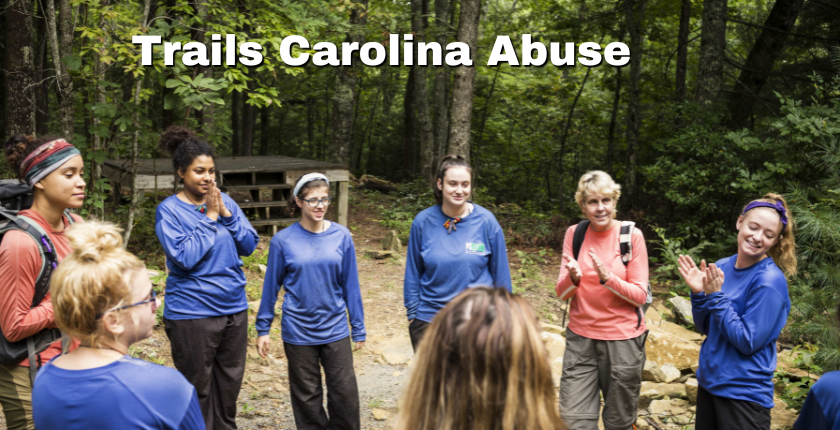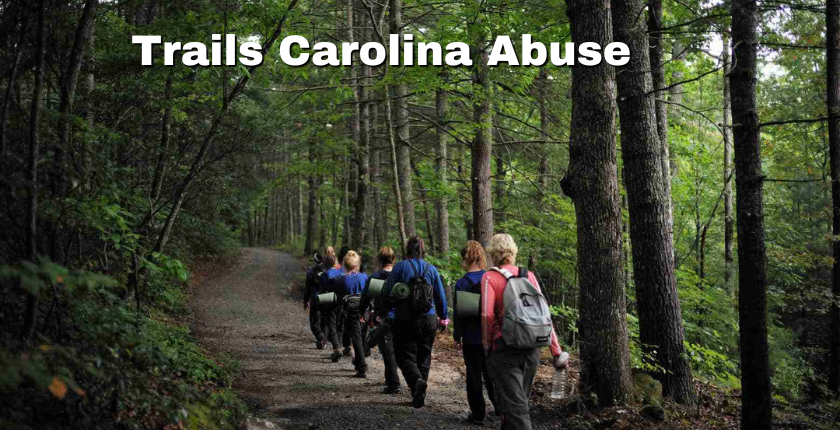Table of Contents
Explore the Trails Carolina abuse controversy, revealing allegations of mistreatment in wilderness therapy. Uncover the impact, regulatory gaps, and the program’s defense in this critical examination.
Trails Carolina Abuse, nestled in the tranquil landscapes of North Carolina, has discovered itself underneath extreme scrutiny because of allegations of abuse, prompting a broader exam of practices inside wilderness remedy programs. Let’s delve into the core of the problem, exploring the philosophy of barren region therapy, the character of allegations in opposition to Trails Carolina, and the wider implications for the industry.
The Essence of Wilderness Therapy Philosophy
Understanding the allegations against Trails Carolina requires a grasp of wilderness therapy’s fundamental philosophy. This therapeutic approach intertwines outdoor activities with counseling, aiming to stimulate personal growth and address various mental health challenges. The core belief is that exposure to a natural and challenging environment fosters self-discovery and behavioral improvement. However, recent accusations against Trails Carolina necessitate a reevaluation of the safety and efficacy of this therapeutic method.
Unpacking Allegations: Trails Carolina Abuse
The allegations surrounding Trails Carolina abuse are multifaceted and deeply troubling. Accounts from former participants and their families include claims of physical and emotional mistreatment, neglect, and questionable practices. Reports range from inadequate nutrition to forced physical exertion beyond safe limits, raising concerns about the program’s departure from its intended therapeutic nature, potentially creating an environment of harm and trauma.
Read also: Night Cloaked Deck

Regulatory Gaps: A Critical Examination
The Trails Carolina abuse allegations shed mild on a glaring trouble in wilderness therapy applications — the lack of regulatory oversight. Critics argue that the industry lacks uniform standards and duty measures, potentially permitting times of abuse to be neglected. The case of Trails Carolina emphasizes the want for clearer policies to ensure the safety and well-being of contributors.
Psychological Fallout: Beyond the Physical
Beyond the physical aspects, the Trails Carolina abuse reports draw attention to the psychological aftermath for participants. Allegations suggest incidents causing lasting emotional and psychological trauma, a stark contradiction to the healing and growth goals of wilderness therapy. This aspect of the controversy emphasizes the necessity of reassessing emotional and psychological support structures within these programs.
Trails Carolina’s Defense: A Counterpoint
In reaction to mounting abuse accusations, Trails Carolina’s management vehemently denies mistreatment, emphasizing adherence to approved standards and willpower to player welfare. However, the persistence of allegations warrants in addition investigation and ability reform in operational protocols to cope with worries and ensure transparency.
Navigating Wilderness Therapy: A Guide for Parents
In mild Trails Carolina abuse worries, mothers fathers, and guardians need to work caution and conduct thorough studies while considering desolate tract therapy alternatives. Exploring a software’s records, attracting former contributors, and understanding inherent risks are vital steps in making informed selections about such interventions.
Final Words
The Trails Carolina abuse controversy underscores the urgency for a more regulated, transparent, and ethically accountable wilderness therapy industry. It requires collective efforts to shield the number one goals of these applications — the safety, properly-being, and boom of young individuals. As the debate unfolds, it should catalyze positive changes, fostering environments where the physical and emotional health of participants remains paramount.
People Also Ask
Q1: What is Trails Carolina, and what is its primary focus?
A1: Trails Carolina is a wilderness therapy program situated in North Carolina, designed to assist adolescents and young adults facing behavioral and emotional challenges. Its primary focus is to combine outdoor activities with counseling, fostering personal growth, and addressing mental health issues.
Q2: What is wilderness therapy, and how does it work?
A2: Wilderness therapy is a therapeutic approach that integrates outdoor activities with counseling to promote personal growth. It operates on the belief that exposure to a natural and challenging environment can lead to self-discovery and behavioral improvement.
Q3: What are the specific allegations against Trails Carolina?
A3: Allegations against Trails Carolina include physical and emotional mistreatment, neglect, and unethical practices. These range from inadequate nutrition to forced physical exertion beyond safe limits, prompting concerns about the program’s departure from its intended therapeutic nature.
Q4: How is the industry responding to the Trails Carolina abuse allegations?
A4: The wilderness therapy industry is under scrutiny due to the Trails Carolina abuse allegations. Critics highlight a lack of regulatory oversight and uniform standards, calling for clearer regulations to ensure the safety and well-being of participants.
Q5: How has Trails Carolina responded to the accusations?
A5: Trails Carolina’s management has consistently refuted claims of mistreatment, emphasizing adherence to accredited standards and dedication to participant welfare. However, the persistence of allegations suggests ongoing debates and potential reforms in operational protocols.




